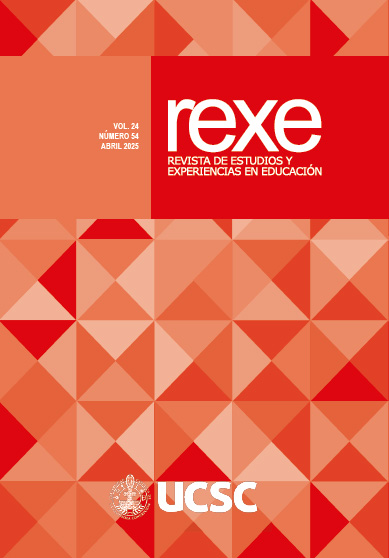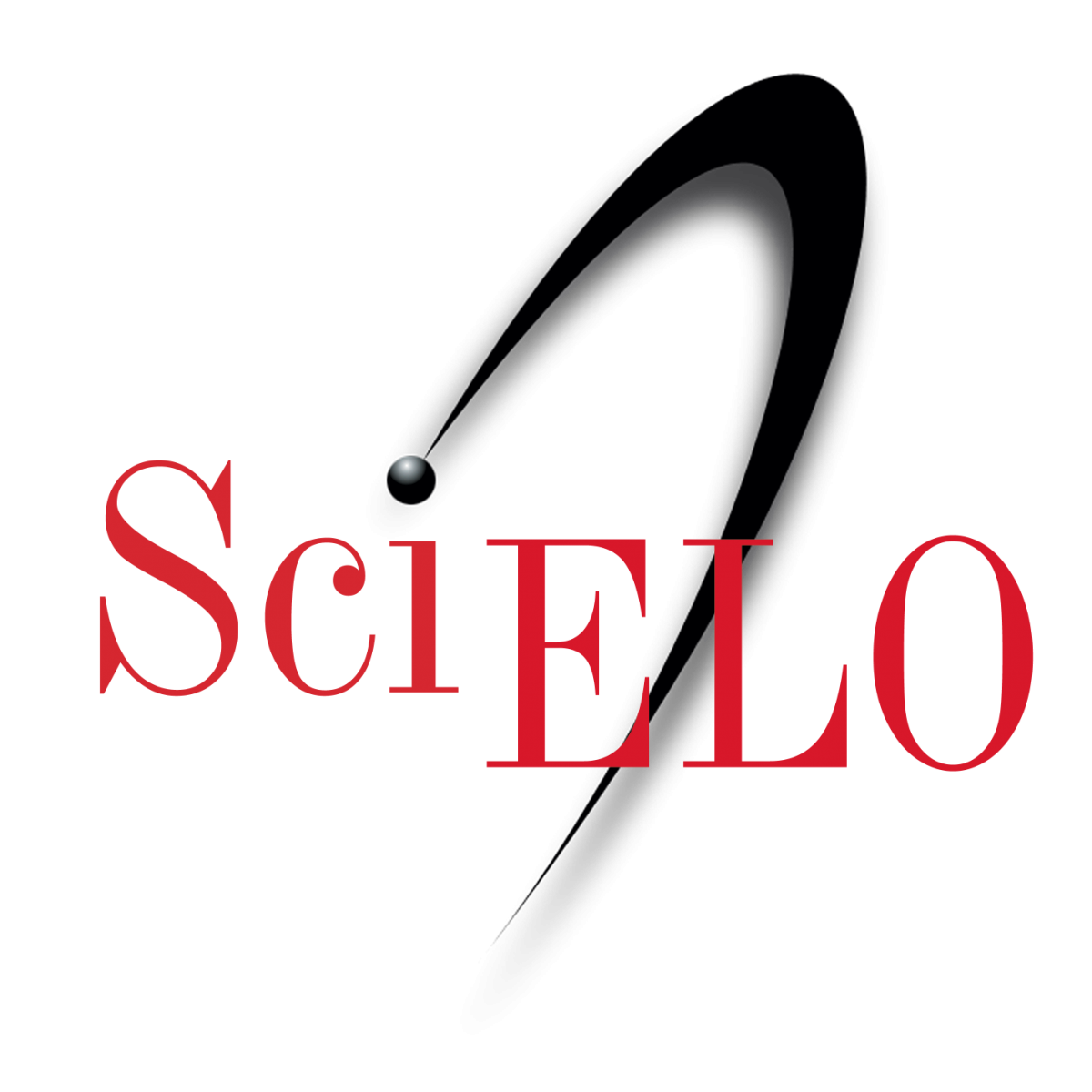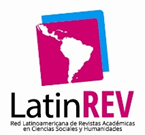Perceptions of teacher educators in Lesson Study on number sense
DOI:
https://doi.org/10.21703/rexe.v24i54.2763Keywords:
Teacher educators, Mathematics education, Lesson plan, Number sense, Teacher professional developmentAbstract
This research aimed to identify the perceptions of five mathematics teacher educators about the Lesson Study process related to number sense, both in the effectiveness of the process and in teacher knowledge, self-efficacy, and expectations. The creation of an online community of practice of trainers of future mathematics teachers from various Chilean universities was proposed through the formation of a Lesson Study group, whose purpose was to promote the development of number sense. From an interpretive analysis, the results indicate that the eight sessions of the Lesson Study process allowed the educators to positively perceive the improvement in the increase in their knowledge, self-efficacy, expectations about the students, and the effectiveness of the process. The reflections of the group complement the assessment of collaboration and professional learning, with the Lesson Study process and practice being a valuable tool to improve their teaching practice in the training of future teachers who will teach mathematics.
Downloads
References
Almeida, R., Bruno, A., & Perdomo, J. (2014). Estrategias de sentido numérico en estudiantes del Grado en Matemáticas. Enseñanza de las Ciencias, 32(2), 9-34. DOI: https://doi.org/10.5565/rev/ensciencias.997
Akiba, M., Murata, A., Howard, C., & Wilkinson, B. (2019). Lesson study design features for supporting collaborative teacher learning. Teaching and Teacher Education, 77, 352-365. DOI: https://doi.org/10.1016/j.tate.2018.10.012
Appova, A., & Taylor, C. (2019). Expert mathematics teacher educators’ purposes and practices for providing prospective teachers with opportunities to develop pedagogical content knowledge in content courses. Journal of Mathematics Teacher Education, 22, 179-204. DOI: https://doi.org/10.1007/s10857-017-9385-z
Ball, D., Thames, M.., & Phelps, G. (2008). Content knowledge for teaching: What makes it special? Journal of Teacher Education, 59(5), 389-407. https://doi.org/10.1177%2F0022487108324554 DOI: https://doi.org/10.1177/0022487108324554
Bardin, L. (2002). El análisis de contenido. Ediciones Akal.
Bisquerra, R. (2019). Metodología de la investigación educativa. Editorial La Muralla.
Beswick, K., & Goos, M. (2018). Mathematics teacher educator knowledge: What do we know and where to from here? Journal of Mathematics Teacher Education, 21, 417-427. DOI: https://doi.org/10.1007/s10857-018-9416-4
Carrillo, J., Climent, N., Montes, M., Contreras, L.C., Flores-Medrano, E., Escudero-Ávila, D., … Muñoz-Catalan, M.C. (2018). The Mathematics Teacher’s Specialised Knowledge (MTSK) model. Research in Mathematics Education, 20(3), 236-253. https://doi.org/10.1080/14794802.2018.1479981 DOI: https://doi.org/10.1080/14794802.2018.1479981
Castro Superfine, A., & Li, W. (2014). Exploring the mathematical knowledge needed for teaching teachers. Journal of Teacher Education, 65(4), 303-314. DOI: https://doi.org/10.1177/0022487114534265
Corcoran, D. (2011). Learning from lesson study: Power distribution in a community of practice. Lesson study research and practice in mathematics education: Learning together, 251-267. DOI: https://doi.org/10.1007/978-90-481-9941-9_20
Chapman, O. (2021). Mathematics teacher educator knowledge for teaching teachers. En M. Goos & K. Beswick (Eds.), The learning and development of mathematics teacher educators: International perspectives and challenges (pp. 403–416). Springer. DOI: https://doi.org/10.1007/978-3-030-62408-8_21
Darling-Hammond, L., Hyler, M., & Gardner, M. (2017). Effective Teacher Professional Development. Learning Policy Institute. DOI: https://doi.org/10.54300/122.311
Dudley, P., Xu, H., Vermunt, J., & Lang, J. (2019). Empirical evidence of the impact of lesson study on students’ achievement, teachers’ professional learning and on institutional and system evolution. European Journal of education, 54(2), 202-217. DOI: https://doi.org/10.1111/ejed.12337
Escudero-Ávila, D., Montes, M., & Contreras, L. C. (2021). What do mathematics teacher educators need to know? Reflections emerging from the content of mathematics teacher education. En M. Goos & K. Beswick (Eds.), The learning and development of mathematics teacher educators (pp. 23–40). Springer. DOI: https://doi.org/10.1007/978-3-030-62408-8_2
Información eliminada para ocultar identidad del autor (2022).
Información eliminada para ocultar identidad del autor (2018).
Even, R., Krainer, K., & Huang, R. (2020). Education of mathematics teacher educators. En S. Lerman (Ed.), Encyclopedia of Mathematics Education, 258-262. Springer. https://doi:10.1007/978-3-030-15789-0_55 DOI: https://doi.org/10.1007/978-3-030-15789-0_55
Información eliminada para ocultar identidad del autor (2021).
Isoda, M., & Olfos, R., (2009). El Enfoque de Resolución de Problemas: En la Enseñanza de la Matemática. Ediciones Universitarias de Valparaíso.
Jaworski, B., & Huang, R. (2014). Teachers and didacticians: key stakeholders in the processes of developing mathematics teaching. ZDM Mathematics Education 46, 173–188. https://doi.org/10.1007/s11858-014-0574-2 DOI: https://doi.org/10.1007/s11858-014-0574-2
Kanellopoulou, E., & Darra, M. (2019). The Implementation of the Lesson Study in Basic Teacher Education: A Research Review. Higher Education Studies, 9(3), 65-78. DOI: https://doi.org/10.5539/hes.v9n3p65
Kanellopoulou, E., & Darra, M. (2019). Benefits, Difficulties and Conditions of Lesson Study Implementation in Basic Teacher Education: A Review. International Journal of Higher Education, 8(4), 18-35. DOI: https://doi.org/10.5430/ijhe.v8n4p18
Lewis, C., & Hurd, J. (2011). Lesson study step by step: How teacher learning communities improve instruction. Heinemann.
Masingila, J., Olanoff, D., & Kwaka, D. (2012). Who teaches mathematics content courses for prospective elementary teachers in the United States? Results of a national survey. Journal of Mathematics Teacher Education, 15, 347-358. https://doi.org/10.1007/s10857-012-9215-2 DOI: https://doi.org/10.1007/s10857-012-9215-2
Masingila, J., & Olanoff, D. (2021). Who teaches mathematics content courses for prospective elementary teachers in the USA? Results of a second national survey. Journal of Mathematics Teacher Education, 25, 385-401. https://doi.org/10.1007/s10857-021-09496-2 DOI: https://doi.org/10.1007/s10857-021-09496-2
McIntosh, A., Reys, B. J., & Reys, R. E. (1992). A proposed framework for examining basic number sense. For the learning of mathematics, 12(3), 2-44.
Miyakawa, T., & Winsløw, C. (2013). Developing mathematics teacher knowledge: The paradidactic infrastructure of “open lesson” in Japan. Journal of Mathematics Teacher Education, 16, 185-209. DOI: https://doi.org/10.1007/s10857-013-9236-5
Mizala, A., Martínez, F., & Martínez, S. (2015). Expectativas de los futuros maestros de escuela primaria sobre el desempeño de los estudiantes. Enseñanza y Formación del Profesorado, 50, 70-78.
Nolen, S., Ward, C. J., & Horn, I. S. (2014). Changing practices. A situative account of teachers’ motivations to learn. En P. W. Richardson, S. A. Karabenick, & H. M. G. Watt (Eds.), Teacher motivation. Theory and practice (pp. 167–181). Routledge. DOI: https://doi.org/10.4324/9780203119273-11
Información eliminada para ocultar identidad del autor (2020).
Información eliminada para ocultar identidad del autor (2015).
Powell, C., & Bodur, Y. (2019). Teachers’ perceptions of an online professional development experience: Implications for a design and implementation framework. Teaching and Teacher Education, 77, 19–30. http://doi.org/10.1016/j.tate.2018.09.004 DOI: https://doi.org/10.1016/j.tate.2018.09.004
Pyrko, I., Dörfler, V., & Eden, C. (2019). Communities of practice in landscapes of practice. Management Learning, 50(4), 482-499. DOI: https://doi.org/10.1177/1350507619860854
Ravanal, E. (2016). Coordinación y aprendizaje en una comunidad de práctica con profesores universitarios. REXE- Revista De Estudios Y Experiencias En Educación, 15(29), 15–28. http://doi.org/ 10.21703/rexe.20162915281 DOI: https://doi.org/10.21703/rexe.20162915281
Rowland, T. (2005). The knowledge quartet: A tool for developing mathematics teaching. En A. Gagatsis (Ed.), Proceedings of the 4th Mediterranean Conference on Mathematics Education (pp. 69-81). Cyprus Mathematical Society.
Salgueiro, M. (2021). Aprendizajes en relación con la enseñanza en carreras de formación inicial, qué se aprende y cómo. Revista Interuniversitaria de Formación del Profesorado, 96(35), 209-226. https://doi.org/10.47553/rifop.v96i35.1.83031 DOI: https://doi.org/10.47553/rifop.v96i35.1.83031
Sancar, R., Atal, D., & Deryakulu, D. (2021). Un nuevo marco para el desarrollo profesional de los docentes. Enseñanza y Formación del Profesorado, 101, (p. 1-12). doi:10.1016/j.tate.2021.103305 DOI: https://doi.org/10.1016/j.tate.2021.103305
Seckel, M. J., & Font, V. (2020). Competencia reflexiva en formadores del profesorado de matemática. MAGIS. Revista Internacional de Investigación en Educación, 12(25), 127-144. DOI: https://doi.org/10.11144/Javeriana.m12-25.crfp
Schipper, T., Goei, S. L., de Vries, S., & van Veen, K. (2018). Developing teachers’ self-efficacy and adaptive teaching behaviour through lesson study. International journal of educational research, 88, 109-120. DOI: https://doi.org/10.1016/j.ijer.2018.01.011
Shulman, L. S. (1986). Those who understand: Knowledge growth in teaching. Educational researcher, 15(2), 4-14. DOI: https://doi.org/10.3102/0013189X015002004
Sims, S., & Fletcher-Wood, H. (2020). Identifying the characteristics of effective teacher professional development: a critical review. School Effectiveness and School Improvement, 1–17. http://doi.org/10.1080/09243453.2020.1772841 DOI: https://doi.org/10.1080/09243453.2020.1772841
Summers, J., Davis, H., & Hoy, A. (2017). The effects of teachers' efficacy beliefs on students' perceptions of teacher relationship quality. Learning and individual differences, 53, 17-25. DOI: https://doi.org/10.1016/j.lindif.2016.10.004
UNESCO (2021). Formadores de docentes en América Latina: Perfil, formación y prácticas en seis países. OREALC/UNESCO Santiago. ISBN 978-92-3-300171-8
Wenger, E. (1998). Communities of practice: Learning as a social system. Systems thinker, 9(5), 2-3.
Yang, D. (2019). Development of a three-tier number sense test for fifth-grade students. Educational Studies in Mathematics, 101(3), 405-424. DOI: https://doi.org/10.1007/s10649-018-9874-8
Yoshida, M. (2012). Mathematics lesson study in the United States: Current status and ideas for conducting high quality and effective lesson study. International Journal for Lesson and Learning Studies, 1(2), 140-152. DOI: https://doi.org/10.1108/20468251211224181
Downloads
Published
Issue
Section
License
Copyright (c) 2024 Macarena Reyes, Soledad Estrella

This work is licensed under a Creative Commons Attribution 4.0 International License.
Open Access Policy
This journal provides immediate open access to its content, based on the principle that offering the public free access to research fosters greater global knowledge exchange.
License
The REXE Journal, “Journal of Studies and Experiences in Education,” published by the Faculty of Education at the Universidad Católica de la Santísima Concepción, is distributed under a License. Creative Commons Atribución 4.0 Internacional.






